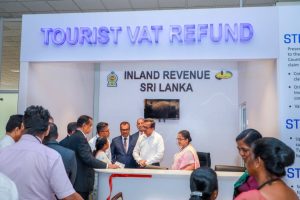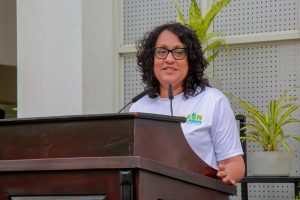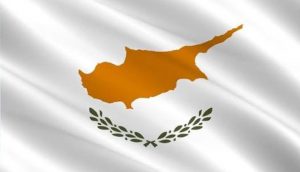Tourism and pluralism ( Kumarasingham Kogulan )

At the tourist sites we visit, you will have passed a small gathering of traders selling their products in small sheds and holding various items in their hands. Their one-time meals contain more drops of sweat. The painful sides of their lives during times of war, covid infection, economic crisis, and their peaceful coexistence with other ethnicities and the pluralism they chrish is somewhat different.
Sri Lanka is one of the preferred tourist destinations in South Asia. Tourism contributed 13 to 15 percent of the country’s total foreign exchange earnings, but the sector suffered massive set-back due to Easter Sunday incidents, Covid-19 lockdown, economic downward trend and the protests held throughout the country last year.
Kataragama Temple
The only place in Sri Lanka where Hindus and Buddhists stand in a row to worship the Lord, we can first mention the Kataragama Murugan Temple. This temple in Monaragala district has created an indelible bond between the Sinhalese and the Tamils since ancient times.
Sinhalese legends say that once upon a time, the Sinhalese king Dutugemunu came to Kataragama and worshiped Murugan before going to war with Elara who conquered northern Sri Lanka, and subsequently won the war.
In the surroundings of the Kataragama temple, which is such a proud place, multi-ethnic communities have been making their livelihood by running small businesses. The area is a historical resource and a famous place for tourism where Tamils, Sinhalese and Muslims live in pluralism without ethnic or religious discrimination. However, the contemporary economic crisis did not spare them either.
“Due to the increase in the price of raw-material for processing, we are compelled to ‘dodol’ at 900 rupees, which was earlier sold at 500 rupees. As a result, our business has halved,’ says Dilan, a Sinhalese trader who is involved in the dodol business in the area with his daughter, son and wife.
Even in the current economic crisis, his family has her 18-year-old differently-abled son and her daughter, who this time is to sit for the GCE A/L Examination.
‘Kalu dodol’ is as famous as Kataragama Murugan temple. Tourists who come here rarely leave without buying this local sweet. Dilan, who has been doing this business for 15 years, says that the condition of many other tourism-focused businesses, including this business, is at risk.
Dilan mentions that coconuts are in short supply nowadays due to the export of coconuts to foreign countries; and the disease that has affected the coconut cultivation too is another reason. The condition of other small traders who use coconut as raw material are also facing situations like this. It should be pointed out that the lives of small traders who rely on such businesses for their livelihood have become pathetic.
Civil war and tourism
During the last 30-years of civil war, this ethnic and religious pluralism was put to question.
The bomb attack that took place on January 25, 1998 in Dalada Maligawa in Kandyand the subsequent attacks on various places affected the tourism industry in a big way.
Due to this, there was animosity between the Tamil and Sinhalese communities. After the end of civil war on May 18, 2009, the situation became better and Tamil, Sinhalese and Muslim people were able to visit the north and south freely, and the government also carried out peace reconciliation activities between the two communities. As a result, the arrival of foreign tourists also increased.
And through this kind of activity, these tourist sites became suitable for establishing peaceful pluralism along with getting to know each other’s language, culture, traditions and their way of life.
Due to this, the situation where only certain ethnic groups were carrying out business activities in major tourist areas has changed and other ethnic groups have also become an opportunity to carry out their small and medium size business activities.
Now it can be observed that Tamil and Muslim people are also engaged in business activities in areas near Dalada Maligawa.
However, this situation is somewhat put to question in Trincomalee district where multi-ethnic communities live. Even though there are many tourist sites here, the Kanniya hot spring area is a very important religious and socio-historical place.
Around this tourist site, 102 people (96 Sinhalese, 04 Tamils, 02 Muslims) are engaged in small business activities. It should be noted that the recent controversy and land rights disputes related to Thirukkoneswaram in the Trincomalee district of the Eastern Province, which is partially identified as the historical Hindu temple. This has caused a slight rift between Tamils and Sinhalese who live here.
Rajendram Ranjini, who is suffering from cancer, runs a small business at Kanniya hot water spring.
‘I am living with my daughter after my husband was shot dead by the army and my son was also lost. During the covid epidemic, we suffered a lot, there was no way to eat.
In the beginning, I used to get 5000 to 6000 rupees as daily income, but now I am getting 500 to 1000. There are days I returned empty-handed without any income.
I need several thousand rupees for my medical expenses. There is no way out for that at the present time,’ she said, who is doing business in the area while suffering from cancer.
There are Sinhala and Muslim friends involved in business in this area and they help us when the language becomes a problem to communicate with the customers. In a situation like this, we also help them, she said.
The year 2018 was recorded as the year with the highest income from tourism in the history of Sri Lanka. According to the report of the Central Bank of Sri Lanka, 2,333,796 tourists visited Sri Lanka in that year alone and the income was 4,380.6 million US dollars. Anyhow, due to the Easter bomb attack on April 21, 2019, the income dropped to $3.6 billion in the same year.
St. Anthony’s Church, Kochchikade damaged in Easter attack 
While the sector was gradually recovering after Easter Sunday blasts, the entire world tourism activity was paralyzed due to the Corona lockdown. The international flight services were suspended for 8 months in 2020 and only 5 lakh people visited Sri Lanka that year.
As it is, the situation has worsened in 2021 compared to 2020. Fewer than two lakh tourists traveled to Sri Lanka due to the Corona scare.
While the country’s economy and tourism sector were slowly recovering from the effects of the coronavirus, in 2022, all sectors in Sri Lanka fell again very rapidly due to the country’s economic crisis.
Due to this, up to 3 million people who are directly and indirectly involved in this sector such as hoteliers, vehicle drivers, tour guides, tour operators, and those involved in small business activities at tourist sites have been affected.
Vavuniya severely affected during the economic crisis
“After being abandoned by my husband, I am running a small business in Pasikuda, Batticaloa. During the covid pandemic, I was able to earn only 1000 rupees per day selling betel nuts and surbat from home. Sometimes it doesn’t even. During the early days of my business, it was severely affected by the Easter bombings. And during that time, there was a kind of fear when looking at Muslims” says S. Chandrawathani from Batticaloa about the issue of peaceful pluralism and the impact of the contemporary economic crisis.
 In the meantime, she had the opportunity to participate in many events related to religious harmony in his GS Division. She also said that through this, her sense of fear faded away.
In the meantime, she had the opportunity to participate in many events related to religious harmony in his GS Division. She also said that through this, her sense of fear faded away.
“In the current economic crisis, the number of tourists is less than before. Those who are coming are also taken directly to hotels and they don’t roam the area. Even when they go out to tourist sites, they take vehicles and move. This is another reason we lose our income”, she said.
Due to the price hikes caused by the economic crisis in the country, the small business owners have increased the prices of their products. A Sinhalese woman named J. Sadeepa, who is selling garlands near Polonnaruwa Gal Vihara, said that no matter how much income she earns, nothing is left because of the high cost of living.
 As far as Polonnaruwa is concerned, accommodation facilities for tourists are very scarce here, so our business activities are limited to 06.00 PM. Further during the time of Corona; we were able to make ends meet by selling young water, papayas and coconuts.
As far as Polonnaruwa is concerned, accommodation facilities for tourists are very scarce here, so our business activities are limited to 06.00 PM. Further during the time of Corona; we were able to make ends meet by selling young water, papayas and coconuts.
Currently, foreign tourists and Tamil and Muslim small traders from places like Pasikkuda, Trincomalee, Vavuniya etc. buy our garlands. Sometimes we get only half of the money and the balance will be paid after selling the goods. Sadeepa says that some people will sell the goods and then pay the money.
“At present the arrival of domestic and foreign tourists is very less. As a result, I have no money to buy new products for my business. Also, I have been in this business for 23 years and I cannot do any other business. I can’t leave it. I am unable to do hard physical jobs due to my old age,” says I. M. Nazar, a Muslim who has been involved in small business in Kanniya hot springs area of Trincomalee for 23 years.
When we asked the dean of the Faculty of Business Studies of the University of Vavuniya, Dr. Y. Nandagopan in this regard, he said as follows:
“Small traders are facing great challenges due to lack of raw materials for production, inability to compete with big traders in the respective areas, inability to identify what products are prefered by tourists due to lack of education, and language skills. He mentioned that the government can help expand the business of these people by providing necessary training, assistance and concessions for the purchase of raw-materials”.
Ms. Mathivathani Sasitharan, Senior Lecturer, University of Vavuniya says as follows:
‘A peaceful environment is created between people of three communities because of their harmony with each other and co-operation. It is a great thing that tourism has united people regardless of caste and religion. Even though the sector has not brought about the big change that we expected, it has brought about peaceful pluralism socially and economically”.
The government should provide grants or low-interest loans to small traders who face many challenges in the tourism sector. Organizing events to attract foreign and domestic tourists, educational tours etc. will take their business forward. It is the expectation of small traders.
“With the aim of bringing Chinese tourists to the country, it is planned to operate 9 weekly flights between Sri Lanka and China from April,” said Tourism Minister Harin Fernando.
Harin Fernando, Minister of Tourism commented on this matter that ‘with the aim of bringing Chinese tourists to the country, it is planned to carry out 9 weekly flights between Sri Lanka and China from April. Chinese tourists visiting the country after 3 years this year will be the most important factor for Sri Lanka’s tourism development.
The Governing Council of the International Monetary Fund has approved a disbursement of USD 2.276 billion to Sri Lanka over a period of 48 months for the economic development of Sri Lanka.
Peter Power, representative of the International Monetary Fund, said in a special press conference that ‘the IMF’s loan assistance program can be seen as a solution to the economic problem’.
Peter Power also informed that “this fund provided to Sri Lanka by the International Monetary Fund will lead to stabilizing prices, increasing the availability of foreign exchange, reducing the problems faced by families with low income due to inflation, and importing essential goods.” People do have the hope that this will lead to the upliftment of the marginalized groups to some extent.
President Ranil Wickremesinghe has said “in order to deal with the economic crisis that the country is facing today, the government will increase the country’s foreign exchange reserve in the future and gradually remove import restrictions on essential commodities, medicines and tourism products. We have to start our future journey from here”.
government will increase the country’s foreign exchange reserve in the future and gradually remove import restrictions on essential commodities, medicines and tourism products. We have to start our future journey from here”.
Tourism is the first sector to fall due to the economic downturn and the last sector to recover. In the main tourist spots, the people of all three communities are engaged in business activities together. Thus, there is a large influx of domestic and foreign tourists only during certain seasons. And at other times their income is questionable, indicating that their business needs to undergo a suitable change.
Those who thus engage in business activities are generally content with what they earn the day income to conduct their daily lives; they don’t seem to have any proper plan to expand their economy.
The government should provide grants or low-interest loans to small traders who face many challenges in the tourism sector. Also, can take their business forward by organizing events to attract foreign and domestic tourists, educational tours etc. It is the expectation of small traders.
Because one race or community travels to another place where another community lives, their culture is exchanged through this traveling, thereby a better pluralistic society can also be built; that’s the reality.







